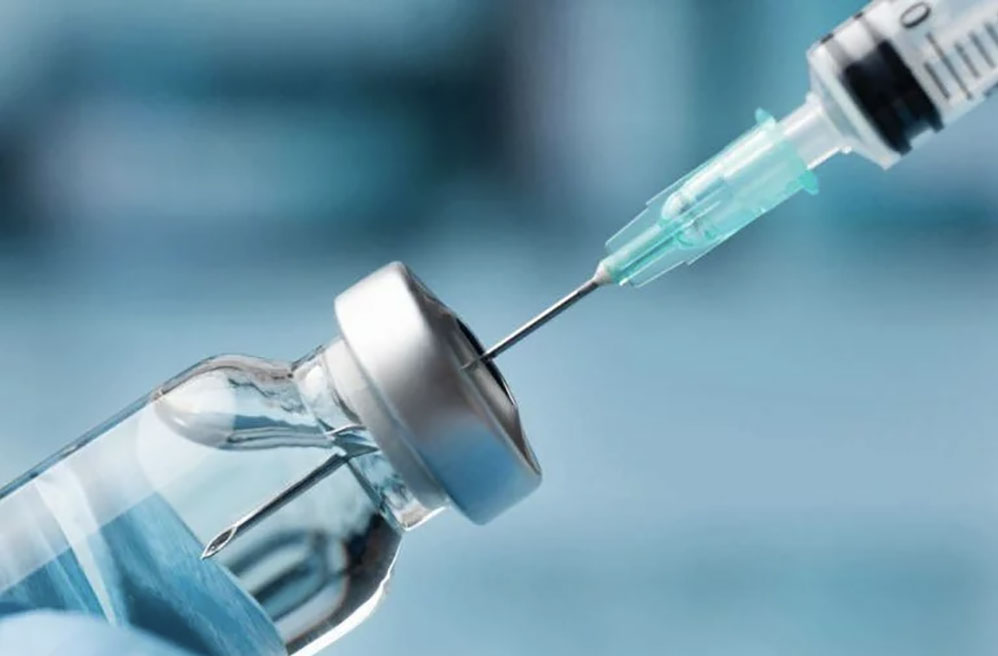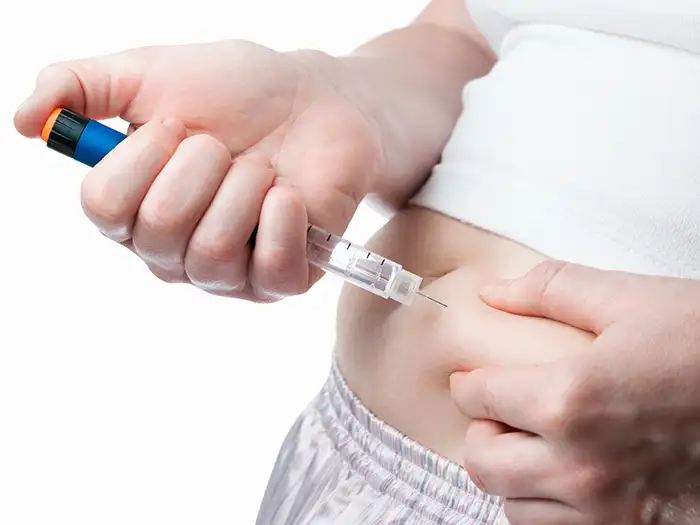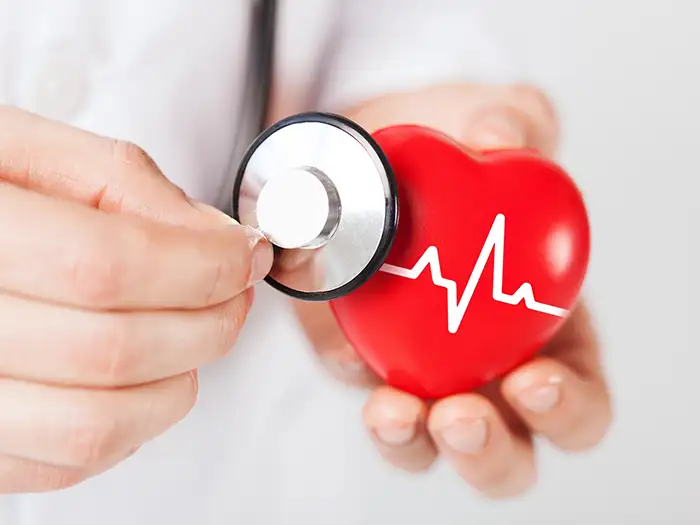As you get older, do you find yourself, well, not in the mood as often? Many women suspect, as they approach perimenopause, that their sex drive is negatively affected. They experience less arousal, and sex actually becomes painful at times.
Loss of libido is common among many women once they reach their 40s. While there can be multiple reasons for this, the decreased hormone levels that come with menopause are typically the root of the issue. Fortunately, there’s good news for women who don’t want to lose their sex drive as they age.
What is Menopause?
Menopause occurs when your period stops, typically around age 50. Women are considered to have reached menopause when they haven’t had a period for 12 consecutive months. This is a result of the drop in estrogen levels that takes place when the ovaries stop releasing eggs.
However, menopause involves far more than just the cessation of your monthly cycle. Many women experience significant symptoms with menopause, including loss of sexual desire. Among the symptoms of menopause are:
- Hot flashes
- Bladder control and urinary tract problems
- Weight gain
- Night sweats
- Depression and anxiety
- Mood swings and irritability
- Vaginal dryness
- Osteoporosis
- Increased cholesterol levels
- Insomnia and other sleep issues
- Thinning hair
What Is Pre-Menopause, or Perimenopause?
Perimenopause is the period leading up to menopause. During this stage, your hormone levels start to drop, but they do so irregularly, resulting in symptoms that can be somewhat unpredictable. Your periods may become irregular, they may grow longer or shorter or you may skip them altogether at times. The symptoms of menopause, including hot flashes and vaginal dryness, are likely to begin — but like your periods, they’re also unpredictable and seemingly random. Fertility decreases during perimenopause — but you can still get pregnant, even if you’re skipping periods.
How Is Your Sex Drive Related to Menopause and Perimenopause?
Most women experience some kind of loss of libido, or another sexual problem, during and after menopause. In fact, as many as 86% of women experience sexual issues related to menopause, and women are twice or even three times as likely as men to see their sex drive decrease with age. The links between decreased estrogen levels and loss of libido are confirmed by studies of women who undergo sudden menopause when their ovaries are removed; these women typically experience a loss of sex drive immediately.
The decrease in estrogen levels that occurs at menopause is fairly abrupt, and that reduction has all sorts of sex-related effects. One is reduced blood flow to the vagina. This lack of blood flow makes the area less sensitive, which makes physical sexual arousal more difficult to begin with. The walls and tissues of the vagina also become dryer and thinner, so sex can become uncomfortable or even painful.
In addition, the constant changes in your estrogen levels may affect your mental health. If you’re struggling with anxiety or depression, you’re not likely to feel particularly sexy. Other symptoms of menopause, including hot flashes, fatigue and insomnia, may also hinder an otherwise active, healthy libido. It’s probably no surprise that women with more pronounced side effects are even more likely to experience a lower sex drive.
Other Causes of Low Sex Drive
While decreased hormone levels are the primary cause of lowered sex drives, many other factors can feed into a loss of libido. Some of these, of course, are more psychological than physiological. Stress and depression often sap your sexual energy, and many women feel less interested in sex if they’re having relationship problems. Even these factors, though, can be related to hormonal issues. For instance, if you’re feeling irritable as a result of the fluctuating hormone levels, you may find yourself experiencing conflicts with your partner.
Several medical factors can also feed into lack of sexual desire. Urinary incontinence, which is more common with aging, may make affected women newly uncomfortable about sex. Conditions such as a prolapsed uterus, endometriosis or even a urinary tract infection can affect your sex drive as well. Women may also experience a decline in their sex drives if they have diabetes or heart disease, and women who smoke also report less active sex drives compared to those who don’t.
Ways to Improve Your Sex Drive
If you’re unhappy with the way your sex drive is declining as you age (and as your hormone levels change), you don’t have to settle for it. You can take positive steps to boost your libido, notably through hormone replacement therapy.
Hormone Replacement Therapy
Hormone replacement therapy treats your lowered sex drive by increasing the hormones your body is no longer producing naturally. When you restore your estrogen levels to their previous youthful levels, your body starts to reverse the symptoms of menopause. Your hot flashes and night sweats cease, your mood swings come under control and a restored blood supply to your vagina helps resolve the issues of dryness and thinning tissue. As a result, you feel more positive, sex ceases to be painful, you’re more easily aroused sexually and your libido returns.
Hormone replacement therapy has been shown to increase sexual desire in women of perimenopausal and menopausal age, while simultaneously helping to ease many menopausal symptoms. No other menopause treatment is as effective over as large a range of symptoms. Hormone replacement therapy also helps reverse the non-sexual effects of menopause, protecting your bones against tissue loss and osteoporosis, and boosting your cardiovascular health.
When you take your hormone replacement therapy in pill form, you reap the most benefits, since the effects of your boosted hormones enter your bloodstream and affect your entire body. Some women choose to use hormone creams or gels that are applied topically to the vagina instead. These treatments primarily help to increase sensitivity, and are proven to result in an overall boost to your sex drive.
Lifestyle Changes
While no lifestyle changes provide the whole-body solutions of hormone replacement therapy, there are a few alternative routes you can try in the battle to boost your sex drive. These include:
- Using water-soluble lubricants: These can help alleviate the painful elements of vaginal dryness and menopausal sex, and they’re safe for use with condoms.
- Natural supplements: Some women take supplements such as black cohosh, soy or red clover to boost their estrogen levels. However, it’s important to consult your doctor before embarking on treatment involving supplements, as they may be unsafe on their own, or contraindicated with your existing prescription medications. For example, soy-based supplements may have potentially dangerous interactions with any estrogen-based therapies, since soy contains natural estrogen.
- Exercise: Many women find that 30 minutes a day of exercise can reduce the severity or frequency of menopausal symptoms, including a low sex drive.
- Changes in sexual habits: Some women turn to changes in their intimate life to boost their sex drive. The use of sex toys or extended foreplay may make sex more appealing. In addition, some women find that pursuing stress-reducing activities with their partner also helps them feel better about sex.
When to See a Doctor About Menopause or Perimenopause
It’s time to speak to a doctor whenever your perimenopausal or menopausal symptoms affect your daily activities — including the state of your libido. Your doctor can rule out any other medical conditions that might affect your sex drive, and they can test your hormonal levels to understand the full picture of what’s going on with your body. They can also provide professional advice concerning any health or lifestyle factors, including prescription medications, that could be impacting your libido.
At Hormonally Balanced, we offer the expertise and compassion that are both so crucial when a woman is dealing with the reduction of libido that often results from perimenopause and menopause. That’s because your health and well-being are our primary concerns at all times. We can walk you through what to expect, to ensure you’re making the right choices about treatment. And we can help you understand whether hormone replacement therapy is right for you, working with you to customize dosage as needed.
Contact us today to see whether your menopausal symptoms, including low sex drive, are treatable. We’ll provide the safe, discreet environment you’re looking for, and help you find the solutions you deserve.



